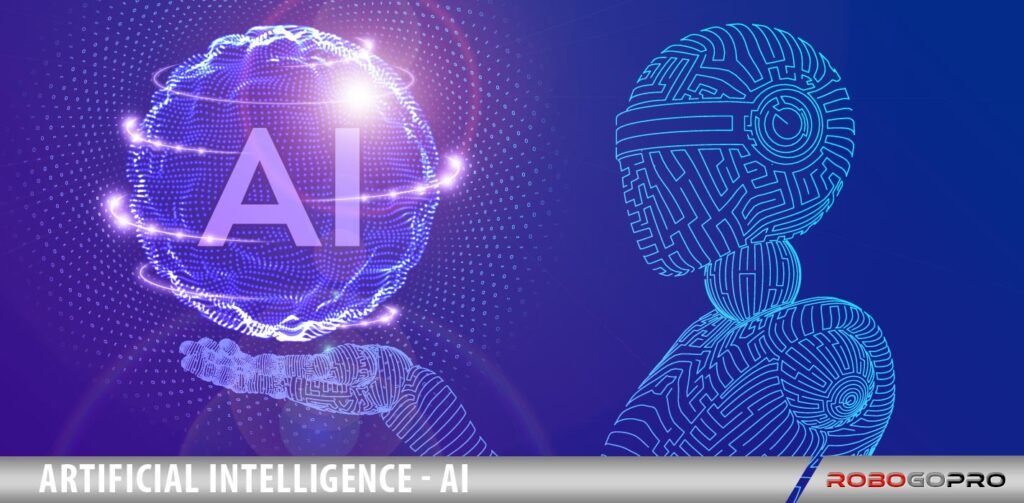-
In this article, we will explore AI’s advantages and disadvantages, backed by research, examples, case studies, and statistics. Additionally, we’ll highlight the key takeaways and how AI can benefit society.
-
Table of Contents
- Artificial Intelligence Pros and Cons
- The Pros of Artificial Intelligence
- The Cons of Artificial Intelligence
- Key Takeaways
Artificial Intelligence Pros and Cons
Artificial Intelligence (AI) has become one of the most transformative technologies of our time. It can potentially revolutionize various aspects of human life, including communication, business, ethics, and communities. However, like any other technology, AI has its own pros and cons.
In this article, we will explore the advantages and disadvantages of AI, backed by research, examples, case studies, and statistics.
The Pros of Artificial Intelligence
1. Increased Efficiency and Productivity
One of AI’s major advantages is its ability to perform tasks with greater efficiency and productivity compared to humans. AI-powered machines can process vast amounts of data and perform complex calculations much faster, improving decision-making and problem-solving capabilities. For example, in the healthcare industry, AI algorithms can analyze medical records and provide accurate diagnoses, saving time and improving patient outcomes.
2. Automation of Repetitive Tasks
AI can automate repetitive and mundane tasks, freeing human resources to focus on more creative and strategic activities. This can lead to increased job satisfaction and higher productivity levels. For instance, in manufacturing, robots equipped with AI can perform repetitive assembly line tasks with precision and consistency, reducing errors and increasing production rates.
3. Enhanced Customer Experience
AI-powered chatbots and virtual assistants have revolutionized customer service by providing instant and personalized support. These AI systems can understand natural language, analyze customer preferences, and provide relevant recommendations or solutions. This improves customer satisfaction and reduces the workload on human customer service representatives.
4. Improved Decision Making
AI algorithms can analyze vast amounts of data from various sources, identify patterns, and make data-driven predictions. This can help businesses and organizations make more informed decisions and develop effective strategies. For example, financial institutions use AI algorithms to analyze market trends and predict investment opportunities, leading to better investment decisions.
5. Advancements in Healthcare
AI has the potential to revolutionize healthcare by enabling early detection and diagnosis of diseases, personalized treatment plans, and improved patient monitoring. For instance, AI algorithms can analyze medical images such as X-rays and MRIs to detect abnormalities that may be missed by human radiologists. This can lead to early intervention and better patient outcomes.
The Cons of Artificial Intelligence
1. Job Displacement
One of the major concerns surrounding AI is the potential for job displacement. As AI technology advances, there is a risk that certain jobs may become obsolete, leading to unemployment and economic inequality. For example, autonomous vehicles could replace truck drivers, and AI-powered chatbots could replace customer service representatives.
2. Ethical Considerations
AI raises ethical concerns regarding privacy, security, and bias. AI systems rely on vast amounts of data, including personal information, to make decisions. This raises concerns about data privacy and security. Additionally, AI algorithms can be biased if trained on biased data, leading to unfair outcomes. For example, AI-powered recruitment systems may inadvertently discriminate against certain demographics if the training data is biased.
3. Lack of Human Touch
While AI can enhance efficiency and productivity, it lacks the human touch that is often crucial in certain domains. Human interaction and empathy are essential in fields such as healthcare and counselling. AI systems may struggle to provide humans with the same emotional support and understanding.
4. Dependence on Technology
As AI becomes more integrated into our daily lives, there is a risk of becoming overly dependent on technology. Reliance on AI systems for decision-making and problem-solving may lead to a loss of critical thinking and problem-solving skills among humans. It is important to balance leveraging AI’s capabilities and maintaining human skills.
5. Potential for Malicious Use
AI technology can be used maliciously, such as cyberattacks and misinformation campaigns. As AI algorithms become more sophisticated, they can be used to create convincing deepfake videos or generate fake news articles. This poses a threat to individuals, businesses, and societies as a whole.
Key Takeaways
- AI offers increased efficiency, productivity, and automation of repetitive tasks.
- It enhances customer experience through personalized support and recommendations.
- AI improves decision-making through data analysis and predictions.
- AI enables early detection, personalized treatment, and improved patient monitoring in healthcare.
- However, AI raises concerns about job displacement, ethical considerations, and the lack of human touch.
- There is a risk of becoming overly dependent on technology and the potential for malicious use of AI.
While AI has the potential to bring significant benefits, it is important to address the associated challenges and risks. Striking a balance between leveraging AI’s capabilities and maintaining human skills and values is crucial for successfully integrating AI into various aspects of human life. By understanding the pros and cons of AI, we can make informed decisions and shape the future of this transformative technology.


